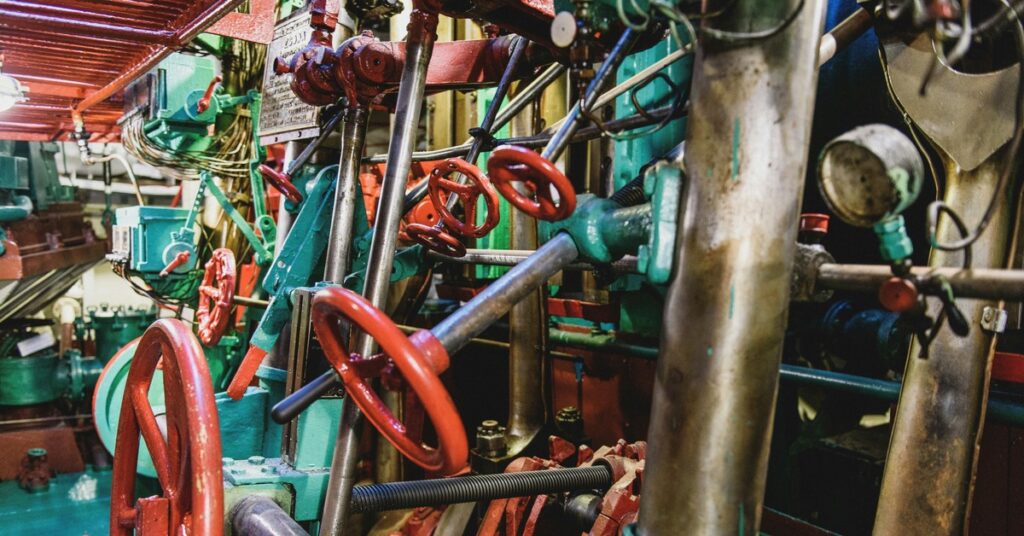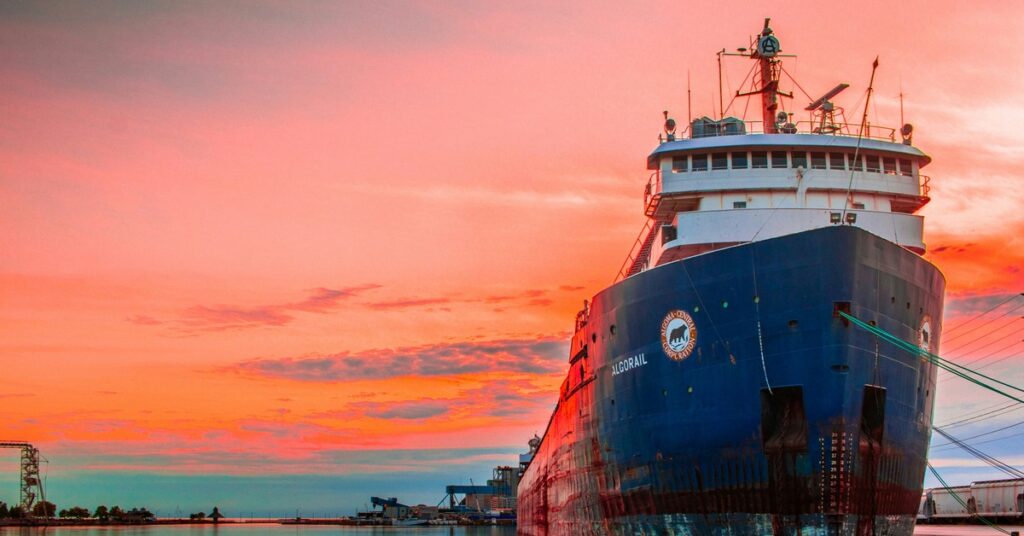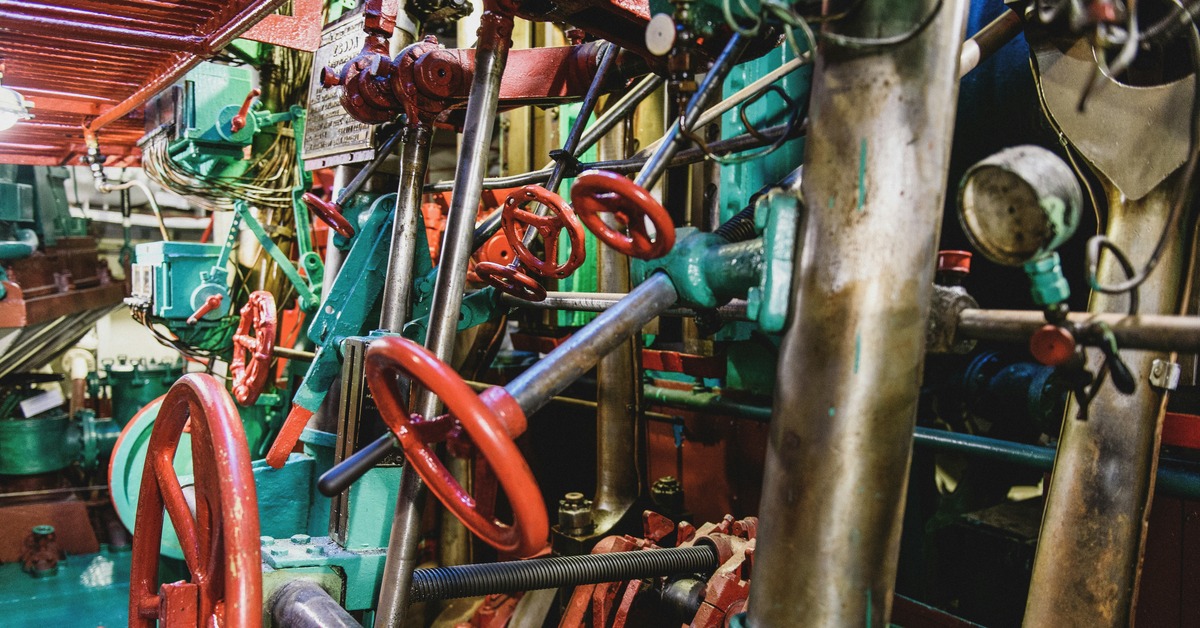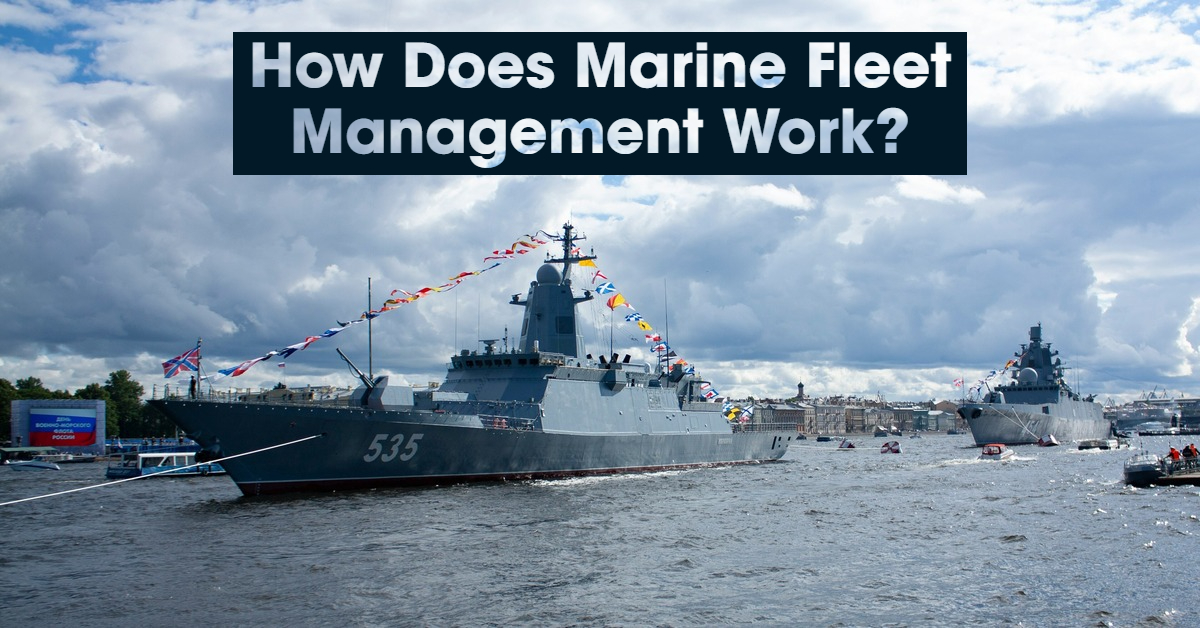If something goes wrong on a ship, the problem could compromise the entire vessel. A power outage is among the worst issues for maritime professionals, whether on a cruise ship, a container ship or a chemical tanker. What happens if a ship loses power? Here’s a guide on protocol, causes and solutions for boats.

What Happens if a Ship Loses Power?
When a ship power failure occurs, time is of the essence. Mechanisms around the vessel will begin failing, so the crew must know what to do. Here’s what maritime professionals should expect during an outage.
Failing Electrical Systems
One of the first signs of an outage is failing electrical systems. The vessel may lose all of its lights and go dark or turn to an emergency system with dimmer shades. Sound also indicates power failure on a ship because the boat will suddenly become much quieter.
Anything connected to the boat’s electrical system could suddenly stop working, thus putting passengers and cargo at risk. For example, containers relying on air conditioning risk damage.
Losing Essential Functions
A power outage becomes more complicated at night and when the ship is far from land. Navigation becomes more challenging because visibility is lower, and the workers have limited or no access to their GPS.
Without power, the crew also loses the ability to communicate with onshore authorities. The ship is stuck at sea, and only the maritime employees can solve the issue. Another essential function the ship loses is power steering if it depends on electricity.
Using Generators
When a ship loses power, the first sign of help comes from the generators. Most ships employ these backup systems because an outage can otherwise immobilize the vessel. Maritime professionals typically keep two to four generators onboard to produce enough electricity for the ship’s essential functions. Like the main engines, generators receive their fuel when the vessel undergoes bunkering. However, these backup systems remain independent of the primary systems.
Following Protocol
A power outage leads to a predetermined protocol for the ship’s leadership, though the steps may differ for a cruise ship and a cargo vessel. In either scenario, crews must practice their emergency plans because they might not have much help fixing the situation.
When a power failure occurs on a ship, the first step is to assess the situation and determine the root cause. If crew members identify the outage, they should notify their supervisor to enforce safety regulations.
Ensuring Safety for the Crew and Passengers
A power outage could be a matter of life or death if the ship doesn’t regain power. Leadership should instruct the crew on what to do during a sudden power failure, such as dropping anchors to stop the boat.
A cruise ship power outage means the maritime leaders must protect the passengers and ensure their safety. For example, they could hand out battery-powered flashlights.
What Can Cause Ship Power Failure?
When a ship loses power, it’s essential to determine the root cause. Here are a few reasons a vessel’s electrical systems could fail.
Electrical Failure
Investigating a power outage should start with the electrical system. Power distribution runs throughout the ship, so a thorough examination is necessary to determine the cause of an outage. The switchboards and generators are excellent first places to look because of their importance to the electrical system.
Maritime crews may have an easier time finding the problem if there is a fire due to its smell. Electrical failures could also originate from lackluster maintenance practices.
Mechanical Failure
A mechanical failure could also be the culprit in the power outage. If this problem occurs, one place to look is the engine. Ships have multiple motors, so checking every system and its components is vital.
The pistons and bearings could be malfunctioning and need replacement. A water leak is another cause of engine failure, as the coolant circuit could crack and let water infiltrate.

Contaminated Fuel
Another mechanical failure relates to the fuel system, as contaminated diesel and gas can significantly impact the engine. Ships pick up debris as they sail the waters, thus allowing contaminants to harm the fuel.
When this fluid has impurities, it makes the engine less efficient and reduces the power output. Ignoring the fuel quality for too long can lead to a complete electrical system shutdown. Bad diesel and gas could also harm the backup generators and cause the ships to lose power.
Lack of Oil Pressure
Oil pressure reduces friction for a ship and helps it ride smoothly through the water. While efficiency is its priority, oil pressure also significantly impacts the electrical system. Insufficient oil means the engine must work harder to reach the necessary power output.
The motor could overheat or experience a complete shutdown. A properly functioning engine lets the oil absorb heat and regulate temperatures. Oil levels should be a routine check for a ship’s crew.
Grounding Issues
Occasionally, ships must go aground to land cargo or crew. An improper landing could damage the ship’s hull and the engine room if the impact is too high. The last thing a crew wants is to hit the bottom of the seabed and harm the engine’s electrical system.
Ships practice grounding drills by inspecting the damage and checking fuel tanks, but issues could arise with fuel line malfunctions or generator destruction.
How Can a Ship Prevent Power Failure?
A power outage is the last thing a crew wants to see, whether on a cruise ship or another vessel. However, there are a few strategies to prevent this occurrence. Here’s what maritime professionals can do to keep the lights on.
Redundancy Mechanisms
Redundancy is among the best defenses when a ship loses power because it provides backup to the primary systems. This mechanism ensures the boat can still run if one engine or generator fails. The level of redundancy depends on the vessel, as ships have differing priorities.
For instance, dynamic positioning 3 (DP3) vessels have the highest redundancy of all DP boats because of the associated risks. Conversely, a DP1 ship has the lowest redundancy because its power failure is less critical.
Generator Maintenance
Ships rely on generators for backup power, or the entire vessel could go dark. If this system doesn’t work correctly, it can be more burdensome than helpful. Crews should inspect the generator at least once or twice yearly to discover problems and ensure correct functions.
Logging maintenance records helps maritime professionals understand what attention the vessel has received. For instance, the generator may need service for a clogged filter causing overheating.
Electrical Inspection
The electrical system is critical to a ship because it powers the bilge pumps, lights and navigation systems. Therefore, regular inspection is necessary to catch problems before they grow larger. Crews should inspect and test each electrical component to ensure it’s in order.
A crew member could examine the switchboards for corrosion and wire discoloration. Another task for ship employees is testing the cables to ensure their resistance is adequate. Otherwise, they risk electrical failure.
Checking the Fuel
Boats require fuel to produce power for the engines and keep the generators running in case an outage occurs. Cargo ships may use heavy fuel oil, diesel, liquefied natural gas or another energy source. Regardless, the fuel requires an inspection to prevent ship power failure.
One of the most essential parts of vessel engines is the fuel filter. The fuel inside the tank can degrade over time, so crew members must inspect the fluid and replace the filter regularly to prevent significant issues.
Implementing Strong Cybersecurity
Crews can mitigate electrical problems through inspection and maintenance. However, some issues are less in their control. Cybersecurity is a growing concern for the maritime industry as hacking technology evolves. Thieves may target ships for their precious cargo and start by removing power from the vessel.
Crews must implement strong cybersecurity practices by setting up intrusion detection systems and collaborating with the tech industry. While a less common cause of ship power failure, it’s still critical to know.
When a ship loses power, panic may ensue among crew and passengers. Nighttime outages are often more unsettling because crew members and passengers may only have the moonlight and flashlights to navigate the issue. Crews should prioritize maintenance and safety drills to protect everybody onboard.
Frequently Asked Questions
Can a ship still steer if it loses power?
Without power, a crew must rely on manual labor to steer the ship. Modern vessels have rudders the crew can turn.
What happens if a ship gets hit by lightning?
A lightning strike can send currents throughout the boat, thus melting wires and damaging vital electrical components. If it misses, the lighting bolt can damage a ship’s electrical system through electromagnetic pulses.
What ship lost power at sea?
In December 2023, a Norwegian cruise ship lost power. Officials said rogue waves damaged the navigation systems but did not harm the primary engine.
What happens when a cruise ship has a power outage?
During an outage, the cruise ship will rely on its generators for power. If the fix takes too long, the crew may evacuate the passengers for their safety.
What can cause ship power outages?
Electrical failures, mechanical failures, contaminated fuel, a lack of oil pressure and grounding issues can all cause ship power outages.



